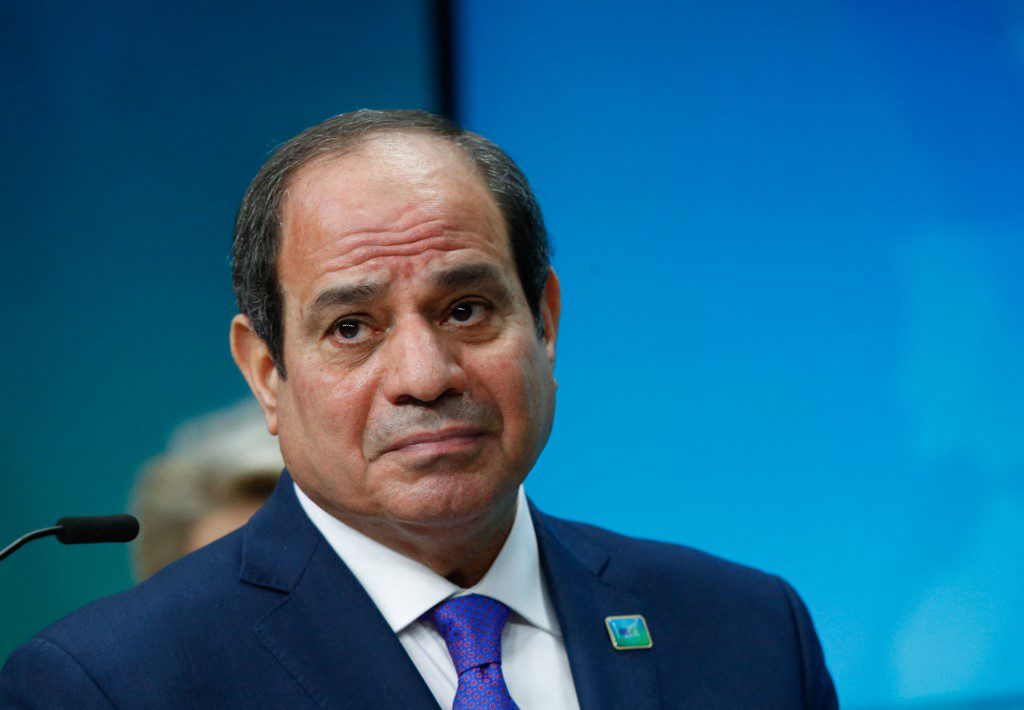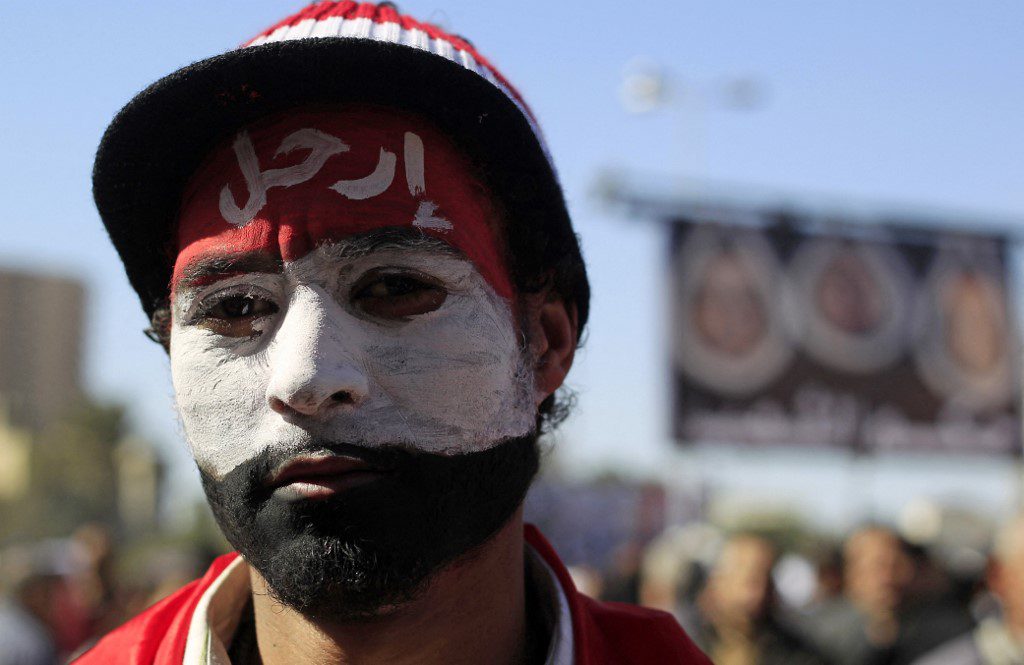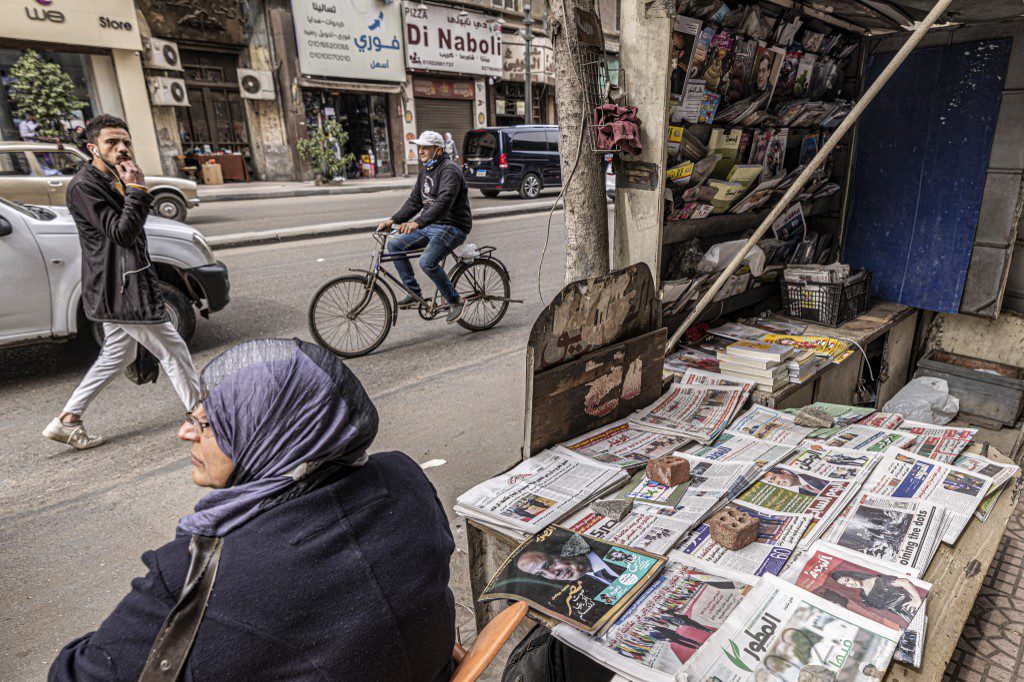
Khaled Mahmoud
The horizon in Egypt is a flatline. In the absence of political discourse, money talks the loudest.
President Abdul Fattah al-Sisi can now achieve the economic reform he envisions after all political, social, and security threats have gone quiet.
Moreover, he doesn’t consider the domestic situation any more concerning, having just returned from the European-African summit and ignoring the efforts of some Western circles to link his external activity to what is happening at home.
Brussels Summit
As evidence of this, the European Union leaders ignored pleas from six local and international human rights organisations not to celebrate Sisi for participating in the European-African summit in Brussels, on Feb. 17 and 18, respectively, given that the Egyptian regime wants to improve its image internationally after the light has been shed on the human rights crisis in recent months under “Sisi’s oppressive rule.”
The International Federation of Journalists warned against helping the Egyptian regime “whitewash its international image and continue repressing journalists with impunity.” However, the EU did not listen.
Amnesty International also said that the Egyptian president’s visit to Brussels came amid a relentless crackdown on human rights activists and complete disregard for what should be considered as crimes under international law.
Furthermore, it requests the EU leaders to publicly denounce the human rights condition in Egypt and press for tangible improvements.
In an article titled “Do not allow Brussels’ visit to wipe his poor human rights track record,” Amnesty called on EU leaders to demand an end to the crisis, starting with the release of activists and the wrongfully imprisoned, and an end to harassing NGOs.
Amnesty added that the EU should use the visit to Brussels to review their partnership with Egypt. Furthermore, it pointed out the need for EU leaders to prioritise human rights.
While Amnesty considers the leniency with Sisi legitimises his government and his repressive policies, the EU leaders must support establishing a monitoring system in Egypt and require submitting the reports to the United Nations Human Rights Council.
Economic Discussions
Surprisingly, a rare controversy erupted in Egypt around the new economic policies the government intends to adopt, even though they prepared for the new wave of price hikes over the past few weeks.
Sisi and his prime minister, Mostafa Madbouly, took it upon themselves to inform the Egyptian people of the new high-cost economic necessities.
Millions of Egyptians continue to pay the economic reform bill launched by Sisi since he took power in 2014. Egyptians do so without publicly protesting, despite directly impacting their daily lives. But when the Central Bank of Egypt issued a decision forcing importers to submit documentary credits instead of documentary collections, widespread controversy sparked about the matter.
While some businessmen refused to comply, the bank governor insisted it was a non-negotiable sovereignty act.
The Federation of Egyptian Banks considered the Central Bank’s decision a banking regulatory measure issued in line with government decisions to protect the industry and preserve the state’s sovereign resources. Still, the business community argued that the decision would lead to a real economic crisis.
Interestingly, this uproar anticipates an expected price spike, which Madbouly had spoken about.
In a press conference, Madbouly talked about the growth of the Egyptian economy during the second quarter of the current fiscal year, pointing to a growth of 9.8 per cent and 8.3 per cent in the first and second quarters, respectively. That puts the average growth of the first half of the fiscal year from July to December at 9 per cent. He considered that this figure proves the extent of the recovery of the Egyptian economy and the acceleration of the growth process.
But the most critical point he mentioned is the expected increase in prices. He added, “Both the government and the people must endure these increases, as no one country can put up with this level of inflation. The government bears a part, and the citizens bear the other.”
However, after 11 years since the Jan. 25 revolution that toppled the regime of the late President Hosni Mubarak, this “Go Dutch” talk rings hollow in politics.

For example, the former leader of the Muslim Brotherhood, Mohammed Badie, turned from a formidable opponent in the political game before 2011 to a mere prisoner, who the Ministry of Interior denies he was infected with COVID 19.
An official statement issued by the Ministry of Interior considered what was reported by the pro-Brotherhood media regarding Badie’s COVID 19 infection to be fake news. It added, “by conducting a medical examination on the aforementioned, it was found that he was not infected with the Coronavirus.”
In tune with the official statement, the Middle East News Agency said in the words of an official source that everything reported by the pro-Muslim Brotherhood media on this matter has no basis in truth.
In both statements, the Egyptian regime insisted on two things: labelling the Brotherhood’s leader as a convicted terrorist. The second, classifying the Brotherhood itself as a terrorist group, responded to the Brotherhood’s report on their leader’s deteriorating health condition through their website.
Soon after this, the Brotherhood media stopped playing the health card of its 79-year-old former leader.
Remarkably, this is the only news linked to the Brotherhood over the past few days, after weeks of reporting on the group’s split allegiances among its leaders who fled to either Turkey or the United Kingdom. That indicates that no one except the regime considers the Brotherhood a relevant threat.
The leadership of the “Evil Supporters,” as Sisi describes the Muslim Brotherhood, has lost their popular support and are being chased out of Ankara, London and Doha after their political and media influence receded, and they were no longer relevant.
In “The New Republic,” a slogan launched by Sisi, as an expression of his vision to rebuild Egypt in a very ambitious project, the economy has become the primary concern, while politics come in second place.
The Egyptian political elite has practically vanished in a country where the president is the sole propagator of news. So, it is not surprising that the debate centred around economic conditions boils down to “a heavy curse is better than a light purse.”
Media Control

Two years ago, Reuters reported Sisi’s increased censorship of entertainment and news and establishing a new regulatory body to oversee media production, making it subject to censorship across the entire pipeline.
Compared to the Mubarak era, the regime tightened its fist on the entertainment industry. United Media Services, established by the regime in 2017, actively and diligently followed the regime’s views. It acquired news outlets, production companies and TV channels, giving it uncontested control over media.
News media are under greater scrutiny since a new law in 2018 allowed state authorities to block social media accounts and punish journalists for spreading fake news.
However, Sisi showed more flexibility in dealing with historically sensitive and ambiguous situations.
Recently, Boulos Fahmy was sworn in as the president of the Supreme Constitutional Court in Egypt, making him the first Christian judge to hold this high position equal in rank to a minister as of Feb. 9, 2022.
The historic decision is reminiscent of a bygone era when the prime minister was a Christian before the July 23, 1952 revolution.
Explosion of Parties
However, that era was also linked to an active political life, in which strong parties were vying to win the Egyptian street over to their side to gain power.
But the multi-party life has faded and is now clinically dead, which is somewhat reminiscent of the Mubarak era and the stage predating the Jan. 25, 2011 revolution.
Nevertheless, it isn’t like there is a lack of parties to speak of. “Counted in lemons,” a popular Egyptian idiom, comes to mind when describing the situation. It is used to poke fun at “the heap of parties” in Egypt.
Over time, the political parties turned into an alarming and controversial figure.
According to the State Information Service, officially registered and approved parties reached 104 in 2018.
Although it is a record number that probably no other country can compete with, it has no impact. It creates a scene that brings back the Mubarak era. Only back then, there was no unjustifiably massive number of political parties.
Sisi’s Memo
In any case, it is hard to understand Sisi without going back to his handwriting from years ago.
A forgotten memo the president wrote in 2006 about democracy in the Middle East when he was an expat officer training in a military fellowship at the US Army War College in rural Pennsylvania.
Retired US Army Colonel Steve Gerras, who served as a faculty adviser at the college when Sisi was there, was quoted saying, “He thought whatever the government structure was had to pay attention to religion. You know he’s thinking: You guys have a secular view, and that will never work in the Middle East.”
In his paper dated March 15, 2006, the brigadier-general at the time believed that “Simply changing the political systems from autocratic rule to democratic rule will not be enough to build a new democracy … As a result, it will take time for people and the nation’s systems to adjust to the new form of government and free-market system that will emerge.”
Betting on the American Influence
Some still believe that Washington can influence Egypt.
But this is hard to gauge. Even the controversy surrounding the 1.3 billion dollars the United States provides in military aid to Egypt doesn’t show the extent of this influence.
Mohamed al-Minshawi, a specialist in American affairs, thinks that the Biden administration isn’t very different from how the late administration dealt with the events in 2011. According to Minshawi, Washington’s pragmatic pursuit of its interests compels it to maintain strong relations with the Egyptian regime, however it is.
On the other hand, fears of possible adverse developments are brewing. Solava Ibrahim, a senior lecturer in international relations at Anglia Ruskin University, argues that while people tolerate the state’s failure to fulfil socio-economic rights in exchange for political stability, the sustainability of the current social contract remains questionable.
Solava believes, according to her new study, that there is an urgent need to enact a new social contract in Egypt that is inclusive, resilient and sustainable in the long run; and more importantly, one that ‘works for the poor’ and addresses their persistent problems and unfulfilled aspirations.
“Poor communities suffer from growing pressures due to the gradual removal of subsidies, the deterioration of education and health services and the limited opportunities for social mobility and political mobilisation.” She adds,
“The failure to enact a new social contract that fulfils these demands confirms the inability of the state to address the ‘revolution of rising expectations’ after the popular uprisings, which raised public hopes and led to deeper frustrations.”
She concludes that “The growing vulnerability of deprived communities and their deepened frustration are ticking timebombs that can jeopardise the future of any political regime – no matter how repressive it is.”


